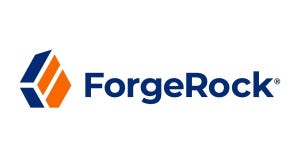Balancing Simplicity and Security in the Digital Experience
New data shows consumer preferences for security in digital experiences and indicates ways businesses can best protect digital identity in today's digital world.
November 27, 2023

By Peter Barker, Chief Product Officer, Ping Identity, part of ForgeRock
Digitalization has spawned a golden age of consumer sovereignty. Consumers have tremendous power because they're better informed and have more choices. E-commerce has facilitated innovative new ways of engaging consumers and introduced new growth avenues for businesses. Customers put their faith in many businesses and, while making digital transactions, share massive amounts of sensitive data with their personal and financial information, hoping that it's safe and secure.
E-commerce sales totals are projected to reach $8.1 trillion by 2026, meaning the amount of data that hackers can use to their advantage will only increase over time. With identity theft and fraud top of mind, consumers look to businesses they can trust, and they appreciate added levels of security through various authentication methods. It is important that organizations balance convenience and security without any compromises. Therefore, it is imperative for businesses to understand how they can best protect their customers and their data.
What Keeps Consumers Up at Night
According to a recent survey, the majority (63%) of e-commerce consumers are worried about identity theft. This outpaces concerns about having their personal information online including worries related to financial loss or government surveillance. This finding holds true across countries and generations.
Notably, over half (54%) of consumers worldwide are anxious about the possible misuse of artificial intelligence (AI) technology to impersonate them. As the use of AI continues rising, consumers want to be assured that their digital identity is well protected.
These concerns increase during the holiday season now upon us, with shoppers making more purchases online. In fact, the average consumer is expected to spend roughly $1,652 this holiday season, surpassing pre-COVID levels and up 14% year-over-year. Nearly half (44%) of consumers say they are more concerned about fraud when shopping online during the holiday season than at other times of the year, an increase compared to last year's 40% of respondents who expressed this concern.
This holiday season, businesses must go the extra mile to protect consumers' data and demonstrate that they can be trusted at the highest level.
Businesses Can Ease Fears With Multifactor Authentication
Only 10% of consumers have full trust in the organizations that manage their identity data. Businesses must put the proper measures in place now to keep data protected and ease customer concerns in today's digital age. One way of doing so is through multifactor authentication (MFA).
Half of consumers say that using either MFA or one-time logins (with text or email prompts) would make them feel more protected against fraud. Businesses should consider offering those options to consumers shopping online as an additional step to verify their identity.
Businesses should also emphasize that they are adhering to consumer data privacy regulations. Most (61%) of global consumers report that having privacy laws to protect consumer data and knowing that a website vendor is complying with those regulations makes them feel more secure when sharing their information online.
Prioritize Passwordless Authentication
In today's technological landscape, keeping up with passwords is a common headache. More than half (54%) of consumers say that their top complaint about keeping track of their passwords is that there are too many to keep track of. However, 59% report that their primary method of storing passwords for personal activity is simply by remembering them.
As organizations take advantage of technologies like digital wallets for payment and biometrics, they must consider passwordless authentication to provide high authentication assurances across the user journey while also keeping the customer experience within and across channels seamless. Imagine a world where we never have to log in again. It's possible by going passwordless.
Online Businesses Need to Step Up
Breaches are continuing to rise, and that is costing organizations customer trust. This can no longer be the case; enterprises need to step up and become leaders in identity protection and privacy. They must go beyond reacting to regulations and complying after the fact; they must take proactive action to better secure and respect the personal information in their custody.
By incorporating MFA, passwordless authentication, and AI technologies into their data security and privacy strategies, organizations can most effectively work to protect all the identities they manage: consumers, partners, and employees.
About the Author

Peter Barker is chief product officer, driving the global product vision, and joined Ping Identity via ForgeRock. Prior to ForgeRock, Peter served as senior vice president and general manager of the Identity Management and Security business at Oracle. Based in Austin, Texas, Peter previously held executive-level positions at Good Technology, Motorola, FedEx, and other companies.
Read more about:
Sponsor Resource CenterYou May Also Like



